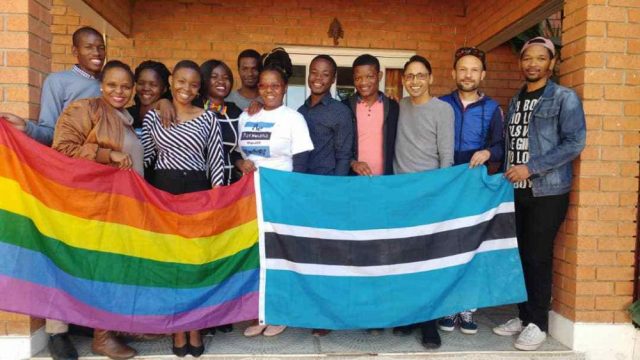
Botswana’s High Court scrapped a section of the country’s penal code that considered homosexuality a criminal offence punishable by up to seven years in prison this past week.
The country’s penal code was drawn up during British colonial rule.
Homosexuality is still illegal in over 30 of Africa’s 54 countries. Possible penalties range from fines and imprisonment to the death penalty in some countries, such as Sudan and Mauritania.
The laws in many African countries were introduced by colonial powers but haven’t changed since the countries became independent.
Euronews spoke to Caine Youngman who is an advocacy manager at The Lesbians, Gays and Bisexuals of Botswana, an LGBT human rights group also known as LEGABIBO.
Change for the LGBT community
Youngman said the court’s decision sent a “huge and loud message” to the country that Botswana’s citizens should not discriminate.
“You shall not violate the LGBTI community and claim it is your right to do so because it is unconstitutional,” Youngman said.
But, he said, most people in Botswana tend not to interfere in other people’s lives.
“People here are a bit uncomfortable with confrontation,” Youngman said. But there are still “isolated cases” and members of the LGBT community have feared retaliation from reporting incidents of violence against them.
“We have a number of Lesbian women who were raped but most of them prefer not to report the matter,” because they think authorities will say they “brought this upon [themselves]”, Youngman explained.
Youngman hopes the court decision will change the situation.
Moving forward
In Botswana, the legal case was launched by a young student who LEGABIBO supported.
“What we were basically telling the court was that this case is beyond this one individual. This case is about a huge community,” Youngman said.
The advocacy group now plans to step up their efforts to educate people about the rights of LGBTI members across the country.
Even though the law was abolished, he said, homophobia is still firmly anchored in many minds.
“We have to work so hard so that the entire community moves at the same pace with the law. Because now the law has moved so fast and our work is to ensure that the community moves fast enough to catch up with the law,” Youngman said.







